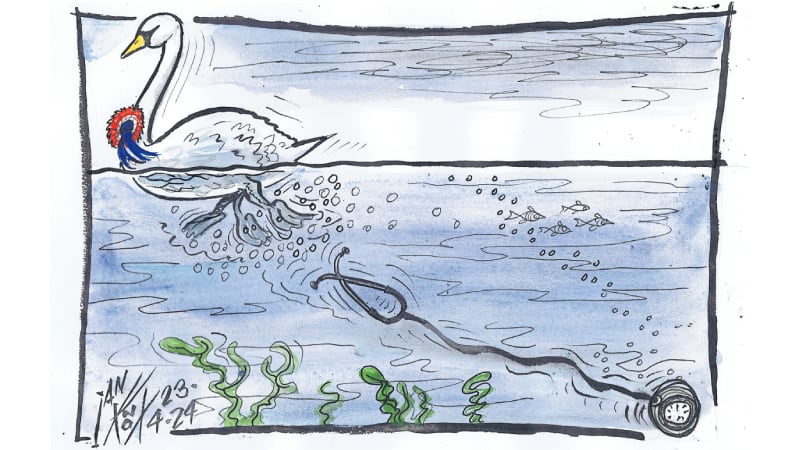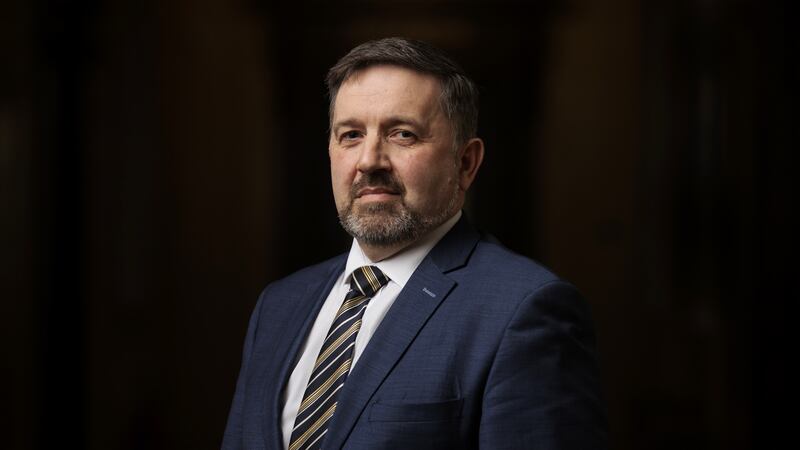John Hyland (Sept 21) appears to be under the impression that the administration of corporal punishment in the Republic’s schools was the sole preserve of teachers of Irish. In fact at the time of partition all of Ireland inherited a school system wherein corporal punishment was a core component. I myself recall being regularly ‘slapped’ for deficiencies in most of my school subjects.
Thankfully corporal punishment was abolished in the Republic in 1982 and north of the border in 1987. England and Wales retained it in independent schools, introducing legislation to ban it completely only in 1999. Even then a number of ‘Christian’ schools mounted a rearguard action that ensured corporal punishment there was not fully abolished until 2005. In that year a BBC report on punishment in independent schools found that boys could be beaten on the buttocks ‘with a flat paddle in a controlled manner’ while girls could be beaten on the hands, then ‘comforted’ by a female member of staff ‘while being encouraged to pray’.
If any teacher in the Republic were to have beaten a child for speaking English, she or he would have been acting in contravention of the 1937 constitution, which in theory afforded equality to both languages, even if in practice English took precedence.
As regards children being ‘forced to change their names to an Irish language version’, no school has any legal power to force anyone to change their name. It would however be considered good practice in an Irish language class to give pupils an Irish language version of their name, (particularly indigenous names such as Murphy or Kelly) for the duration of the class, one which they might also use on their Irish ‘Cóipleabhar’. It is difficult to see why any child or parent would object to that.
While corporal punishment was routine in the grammar school I attended from 1958 to 1965, I was fortunate to follow two summer courses in a school where the excellent teachers never had recourse to corporal punishment. The school in question was Coláiste Aoidh Mhic Bricne in Teileann, Co. Dún na nGall. As in all Irish language summer schools, even in those dark days, corporal punishment was unknown.
Incidentally the Irish word for a stick is ‘bata’.
BRIAN PATTERSON
Newry, Co Down
Liberal fascism
‘If fascism ever comes to America, it will come in the name of liberalism’. This is a quote from Ronald Reagan during a 1975 interview with 60 Minutes.
I never thought I would hold an opinion from this man in high regard, let alone agree with it. But in today’s America, under Biden and the Democrats, the warning has been realised. They are driven by a pursuit of a unipolar world where only one shall rule. They have scoured the globe to stymie, threaten and provoke their economic and political rivals even to the point of war and potential catastrophe.
The US is fighting a proxy war in the Ukraine and will become increasingly involved as they sense Russia is weakened and wounded. They have employed gunboat diplomacy with Pelosi’s visit to Taiwan, knowing the anger it would cause in China. The conflict in Ukraine would have been highly unlikely under Trump. Yet the liberals appear hell-bent on raising the diplomatic stakes to staggeringly dangerous levels, and we can see how the military industrial complex is at hand to exploit the uncertainty and distrust that has ratcheted since Biden. Billions in war material have poured into Ukraine, more billions in weaponry has been targeted for Taiwan. America is determined to be the only sheriff in town and the sabre rattling is drawing the world closer to a conflict that could envelop many nations.
What is deeply dismaying and disturbing has been the lack of information on the world stage. We are fed the news through the usual channels, the state-sponsored and paid for outlets that we in Ireland have experienced to our cost. To watch citizens accept their version of events in the absence of balance clearly demonstrates that truth is the first and final victim of war.
LAURENCE TODD
Belfast BT15
Cost of living is a real crisis
When Michelle O’Neill said there was no alternative to the conflict in Northern Ireland, Ian Paisley said she had caused a crisis. At first I thought Ian was joking.
Then he and members of his party have caused many crises. Ian Paisley is a member of the DUP, the same party that is causing a real crisis by boycotting Stormont and refusing to set up a government. I believe a crisis is when families can’t afford to put food on their tables; can’t afford to heat their homes and can’t pay for school uniforms for the kids starting school.
While MLAs at Stormont continue to be paid good wages for not attending work, working class families can’t afford that luxury.
I am not defending Michelle O’Neill but if you ask any republican or loyalist the same question I have no doubt, many, if not all, would say the same. We have now moved on. Some other politician will answer a question that will not suit everyone but it was not an answer that suits the DUP and many other people, but it surely did not cause a crisis.
Michelle O’Neill has continued to ask the DUP to come back into Stormont because she wants to help the people of Northern Ireland to get out of a crisis – as do all the other parties at Stormont.
Talk to the people on the Shankill Road or on the Falls Road and they will tell you what a crisis is – the cost of living and the debt they are in.
HUGH McCORMICK
HMP, Maghaberry
Church needs radical change
Patrick Murphy’s comments – ‘Catholic Church’s last stand – or comeback?’ (September 3) – was an excellent read.
The synod of Thurles commenced August 22 1850 – the previous gathering was 1642 – and may be deemed as the symbolic point of modern Irish Catholicism. After the famine this was the first religious stirrings from the ashes of despair, henceforth a stringent approach to the sacraments was adopted and they were brought within the walls of the Church. New traditions and rites were created and strictly enforced. In less than a decade the bishops reigned supreme and their authoritarian attitude was unchallenged. This supreme Church ruled for about 130 years. In 1992 Bishop Casey was outed as the father of a child and this was the first crack. The real earthquake struck in October 1994 with the Brendan Smyth paedophile affair.
The public were outraged and sought answers. The archbishops and bishops were hopeless – not prepared and evasive when strongly confronted for truthful answers. Now in 2022 the Pope has belatedly sought advice on resuscitation of a sickly Vatican. I am not hopeful of any positive response or meaningful delegation of reforms from Rome. The present Canon Law control mechanisms are unsuitable for modern society. Without radical change a decline into irrelevance will continue.
BRIAN WILSON
Craigavon, Co Armagh







